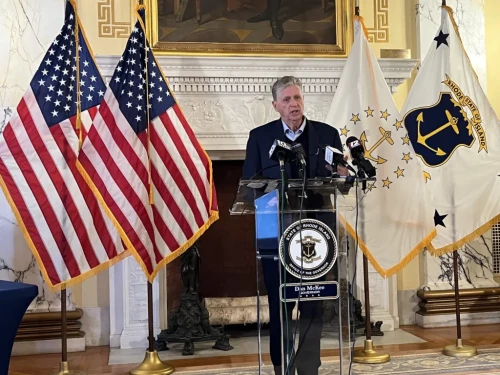A Brown University professor won a Nobel Memorial Prize in Economic Sciences on Monday.
Peter Howitt, an emeritus professor of Economics, shared the prize with Joel Mokyr of Northwestern University and Philippe Aghion of INSEAD and the London School of Economics, for their research on how innovation drives economic growth.
Howitt and Aghion jointly won half the prize “for the theory of sustained growth through creative destruction,” the Nobel committee said in its announcement. In a paper published in 1992, they produced a mathematical model that charts how companies invest in new products, outcompeting the products that had previously been at the top.
This theory of “creative destruction” has led to more research, the committee said, as well as practical lessons. For example, the research suggests that “forceful policies that aim to counteract too much market dominance may be necessary,” and workers may need more support to ensure they benefit from an economy that is constantly undergoing this “creative destruction.”
Brown University President Christina H. Paxson congratulated Howitt in a statement.
“We are proud and deeply honored that the work of Professor Howitt, one of our esteemed faculty, has received the international recognition of a Nobel Prize,” Paxson said. “At a time when the role of research in sparking innovation in new technologies is so prominent in discussions about our changing society, I’m sure that people around the world will appreciate learning more about Professor Howitt’s work, along with the contributions of the other prize winners.”
Howitt joined the faculty at Brown in 2000.







